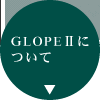予定表 -詳細情報-
| 件名 | LS Yuichi Kubota氏 |
| 開始日時 | 2012年 7月 17日 (火曜日) 12時15分 (GMT+09:00) |
| 終了日時 | 2012年 7月 17日 (火曜日) 12時50分 (GMT+09:00) |
| 場所 | 1号館401教室 |
| 詳細 | GLOPE II ランチタイムセミナー 【報告者】Yuichi Kubota (Ph.D Candidate, SUNY, Albany) 【タイトル】The Stronghold and Beyond: Explaining Rebel Strength in Civil War, 1946-2005 【場所】1号館401教室 【概要】 Under the competitive relationship between belligerents, the structural contexts of civil war have important effects on the strength of rebel forces. The stronghold enables a rebel group to exert great influence on civilians and exclusively mobilize combatants. In contrast, the rivalry with the government checks the group’s mobilization of combatants in contested areas. With the increase in size of a contested area, rebel leaders come to lose influence over civilians as well as information about their actions as the distance between the leaders and followers is in inverse proportion to influence and the acquisition of information. Given that the group has a common identity with those civilians, however, the loss of influence and information will be minimized for the mobilization of combatants. The quantitative analysis of civil wars, 1946-2005, reveals that, in addition to the presence of increasing military capacity and territorial control, the expansion of a contested area in identity-based conflicts has a positive impact on rebel strength. * The talk will be given in English. |
| カテゴリー | 政治経済学基礎セミナー・ランチタイムセミナー |








